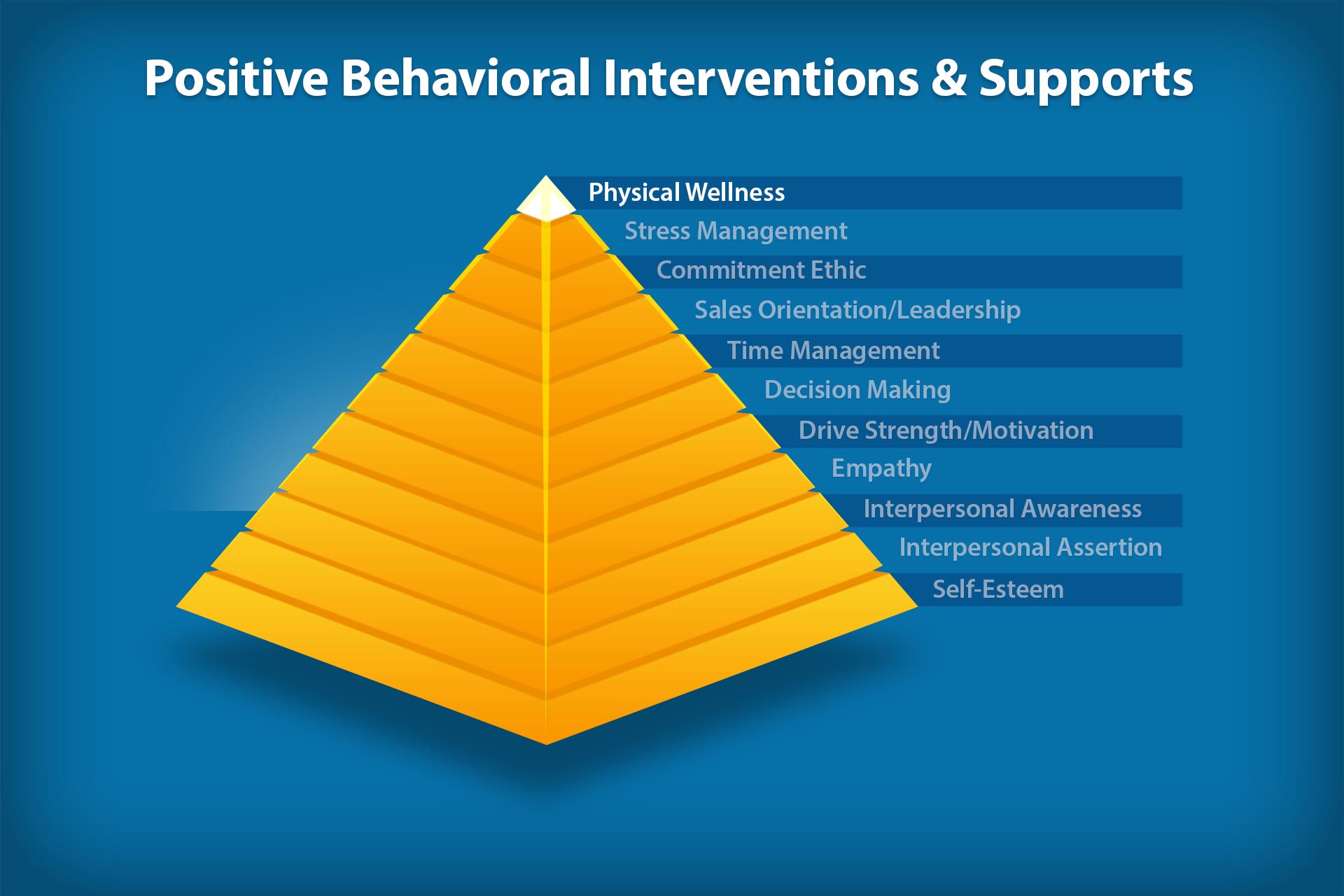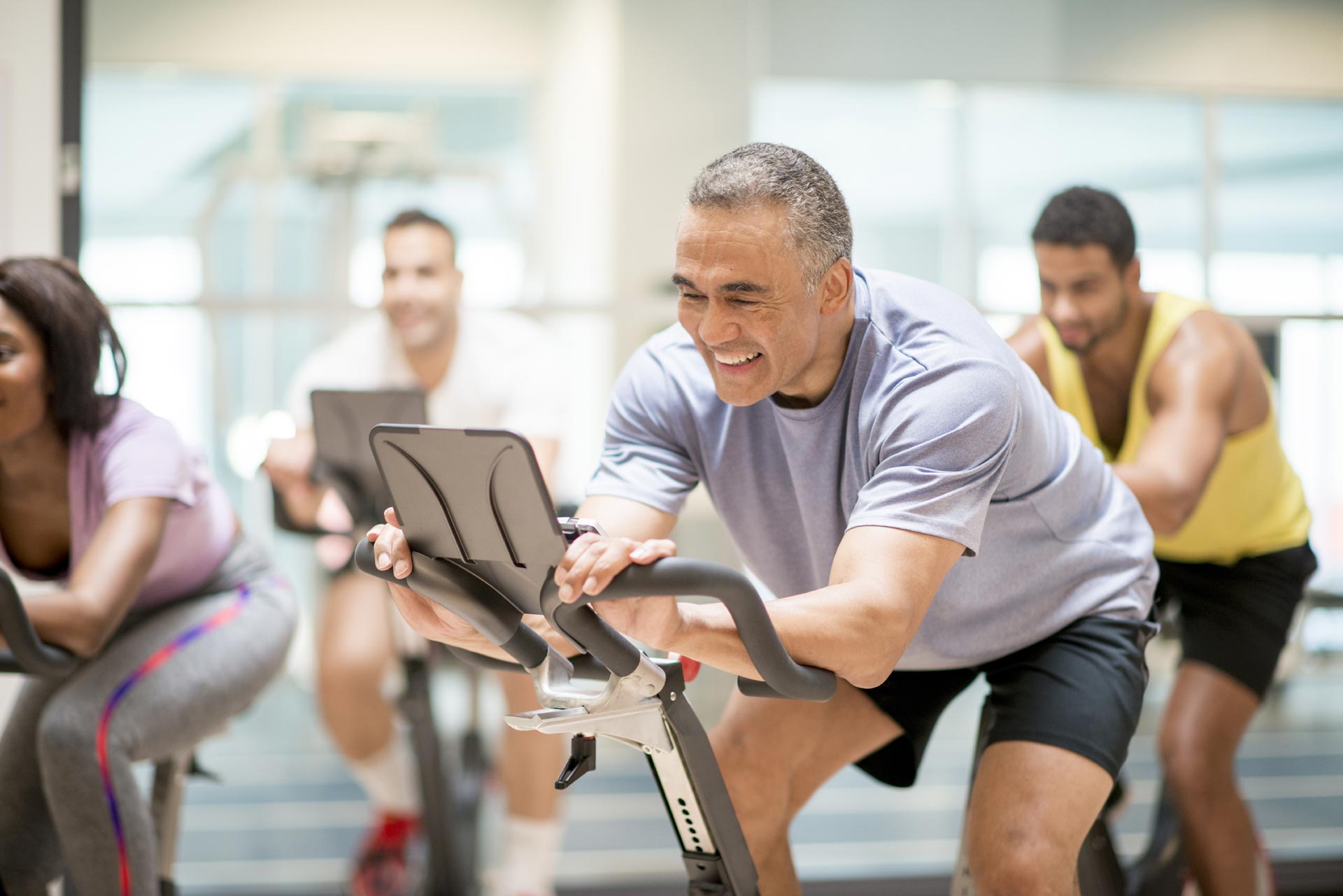
Physical wellness is the state of health that is the result of doing healthy things, such as eating good foods, exercising daily and feeling good about life. Wellness is the state of health and well-being we are able to achieve. It is not only being free of illness. It is being the best we can be.
Positive Behavioral Interventions and Supports (PBIS) is a term used to describe the proactive approach to establishing the behavioral supports needed for students to achieve social, emotional and academic success. This definition brings together the worlds of academic instruction and behavioral intervention. The PBIS framework in schools is catching on as school leaders understand that academic performance cannot be separated from social/emotional learning. Physical wellness is a personal effectiveness trait that is often overlooked in the process of academic performance. In the race to improve academic performance, physical wellness takes a back seat. But it is obvious—when we feel well, we perform well.
The Three Cornerstones of Physical Wellness

There is a billion-dollar industry in advising people how to take care of themselves. Everything from dieting and nutrition, to gym memberships and athletic gear has been monetized by the physical wellness industry. This industry has thousands of books specifically targeting physical wellness. A quick review of all the literature reveals three core attributes to becoming physically well:
Self-Esteem: The desire to take care of one’s physical self begins with self-esteem. If your self-esteem is low, your opinion of yourself is also low. Low self-esteem will lead to a lack of desire to maintain or improve physical wellness. On the other hand, if you self-esteem is high, you feel good about yourself and how you look and feel.
Stress Management: The link between stress and disease has become clear. Research has found that stress, over long periods of time, results in damage to the immune system. A damaged immune system leads to poor health.
Personal Responsibility: Responsibility is the state of being accountable for one’s actions. Put the word personal in front of it, and it takes on the meaning that you are accountable for your own actions. If you won’t take responsibility to live a healthy lifestyle, nothing can be done. When talking about personal responsibility for physical wellness, we must include such things as what you eat, how much you eat, how much you sleep, and how much you exercise.

But, just knowing about Physical Wellness isn’t going to translate into positive outcomes for your program. If you really want to see results, you need to apply this information in a way that will help the individuals you work with set goals, manage their emotions, and develop the workplace readiness skills they need to be successful in today’s information economy.
If you need help connecting PBIS to meaningful outcomes, we’ve developed social/emotional learning standards that you can download for FREE. These standards are research-based and organized by stage of life, so you can easily identify which skills to work on with your users or students.
If you’d like to download our soft skills standards you can find them here:
This concludes our blog series on PBIS, the Personal Skills Map and the eleven skill interventions of the Success Profiler. Make sure to visit our blog history to catch up with our other blogs. We hope you now see the connection between our social/emotional assessment and skill intervention system and PBIS.
